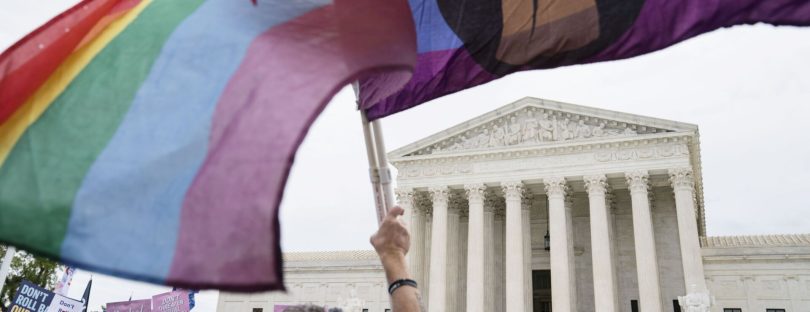The Biden administration is bolstering civil rights protections for transgender and other LGBTQ people in a federal rule that could quickly face legal challenges.
The final rule (RIN 0945-AA17), announced Friday by the Department of Health and Human Services, reverses a Trump-era regulation and restores gender identity and sexual orientation discrimination protections under Section 1557 of the Affordable Care Act.
Section 1557 prohibits discrimination on the basis of race, color, national origin, sex, age, or disability by entities that primarily provide health care and receive federal funding. It is enforced by the HHS Office for Civil Rights.
The new rule “means that Americans across the country now have a clear way to act on their rights against discrimination when they go to the doctor, talk with their health plan, or engage with health programs run by HHS,” HHS Secretary Xavier Becerra said in a statement.
The new rule comes as over 20 states have limited or banned gender-affirming care for children, according to KFF. KFF also noted that over a dozen states are facing lawsuits over their youth gender affirming care policies.
The rule also follows the US Supreme Court’s 2020 decision in Bostock v. Clayton County, in which the justices ruled that LGBTQ people are protected from discrimination under Title VII of the Civil Rights Act of 1964.
In light of Bostock, the Biden administration in 2021 announced it would interpret the word “sex” in the ACA to include gender identity.
“As part of its prohibition on sex discrimination, this rule prohibits discrimination against individuals who do not conform with stereotypical notions of how an individual is expected to present as male or female, regardless of gender identity. This is consistent with longstanding case law,” the HHS rule said.
Over 85,000 comments were filed with the HHS after the rule was proposed. The comments came from organizations for LGBTQ+ people, religious groups and others.
In the rule, the HHS said commenters had taken issue with Bostock’s using “transgender status” as a term rather than “gender identity.”
The HHS, however, said this doesn’t result “in any meaningful distinction regarding protections afforded to transgender individuals or other individuals experiencing discrimination on the basis of their gender identity.”
Some commenters were also concerned the HHS proposal would stop health professionals from declining gender-affirming treatments on religious or moral grounds.
The HHS, however, said the regulation doesn’t require “the provision of any specific services.”
Rather, the HHS said the regulation is “intended to prohibit sex discrimination generally in order to improve health outcomes for the LGBTQI+ community and fulfill the statutory command of the ACA to prohibit discrimination and remove unreasonable barriers to care.”
Under the rule, the HHS will enforce its provisions for health insurance plans that do business through Medicare, Medicaid, or the Obamacare exchanges, including care provided under Medicare Part B, like that in a doctor’s office.
“The final rule reverses extremely harmful Trump-era regulations and makes clear that no one should be denied access to health care or health insurance coverage because of their sexual orientation or gender identity,” Kellan Baker, executive director of Whitman-Walker Institute, a research and policy group focused on LGBTQ and other health interests, said in a statement Friday.
Sarah Kate Ellis, president and CEO of GLAAD, a media-monitoring group, said in a statement the rule “will ensure that no one who is LGBTQI or pregnant can face discrimination in accessing essential health care.”







